BMW X1 vs Tesla Model 3 - Differences and prices compared
Compare performance (326 HP vs 460 HP), boot space and price (38200 £ vs 34300 £) at a glance. Find out which car is the better choice for you – BMW X1 or Tesla Model 3?
Costs and Efficiency:
When it comes to price and running costs, the biggest differences usually appear. This is often where you see which car fits your budget better in the long run.
Tesla Model 3 has a a bit advantage in terms of price – it starts at 34300 £, while the BMW X1 costs 38200 £. That’s a price difference of around 3951 £.
As for range, the Tesla Model 3 performs convincingly better – achieving up to 750 km, about 669 km more than the BMW X1.
Engine and Performance:
Under the bonnet, it becomes clear which model is tuned for sportiness and which one takes the lead when you hit the accelerator.
When it comes to engine power, the Tesla Model 3 has a distinct edge – offering 460 HP compared to 326 HP. That’s roughly 134 HP more horsepower.
In acceleration from 0 to 100 km/h, the Tesla Model 3 is significantly quicker – completing the sprint in 3.10 s, while the BMW X1 takes 5.40 s. That’s about 2.30 s faster.
In terms of top speed, the Tesla Model 3 performs to a small extent better – reaching 262 km/h, while the BMW X1 tops out at 233 km/h. The difference is around 29 km/h.
There’s also a difference in torque: Tesla Model 3 pulls evident stronger with 660 Nm compared to 477 Nm. That’s about 183 Nm difference.
Space and Everyday Use:
Whether family car or daily driver – which one offers more room, flexibility and comfort?
Both vehicles offer seating for 5 people.
In curb weight, BMW X1 is to a small extent lighter – 1575 kg compared to 1822 kg. The difference is around 247 kg.
In terms of boot space, the Tesla Model 3 offers hardly perceptible more room – 594 L compared to 540 L. That’s a difference of about 54 L.
When it comes to payload, BMW X1 clearly perceptible takes the win – 500 kg compared to 333 kg. That’s a difference of about 167 kg.
Who comes out on top?
Overall, the Tesla Model 3 shows itself to be wins the duel decisively and secures the title of DriveDuel Champion.
It convinces with the more balanced overall package and proves to be the more versatile choice for everyday use.
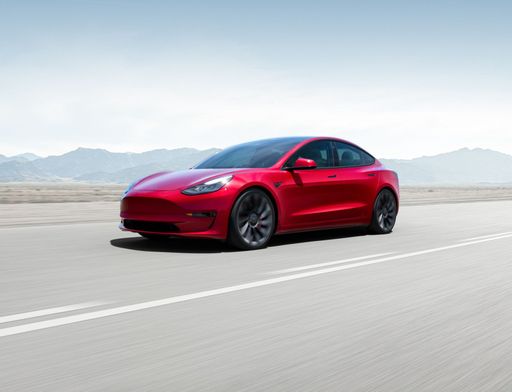
Tesla Model 3
Costs and Consumption
View detailed analysis
Engine and Performance
View detailed analysis
Dimensions and Body
View detailed analysis
BMW X1
The BMW X1 brings a premium feel to compact crossover life, wrapping practical space and agile handling into a tidy, upscale package. It’s ideal for buyers who want BMW driving dynamics without the bulk, offering everyday comfort and a few clever tricks to keep the commute interesting.
details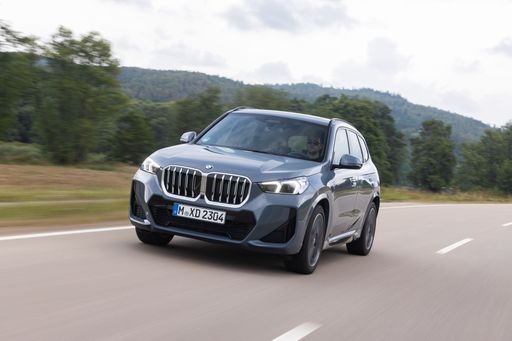
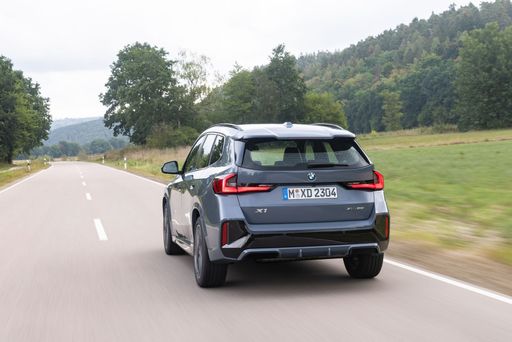
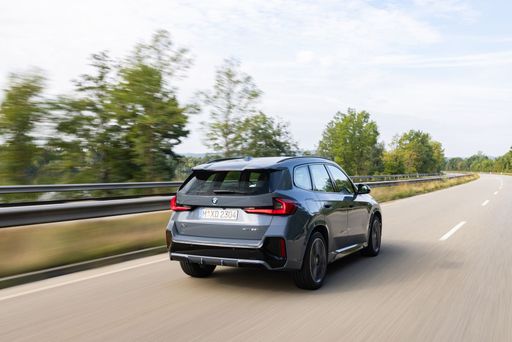
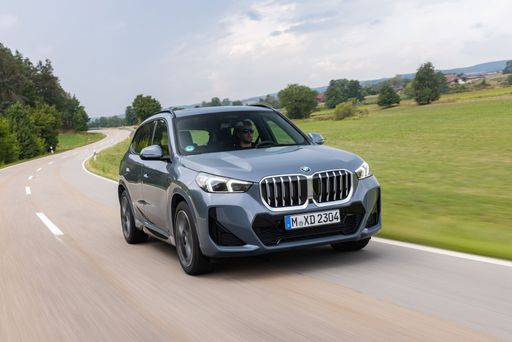
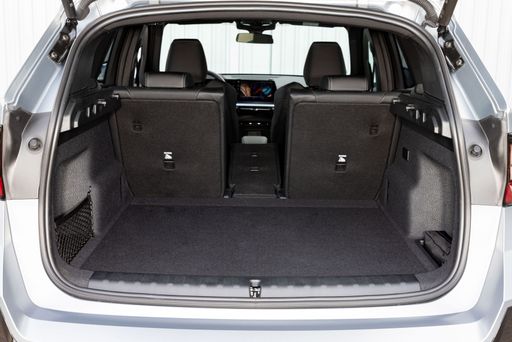
Tesla Model 3
The Tesla Model 3 slices through daily commuting with a silent, confident shove that makes petrolheads reassess their life choices, while its minimalist cabin feels more like a slick gadget gallery than a traditional car interior. For buyers after a fuss-free, tech-forward electric with plenty of grin factor and low running drama, it’s hard to beat—just don't be surprised when the car updates itself overnight.
details
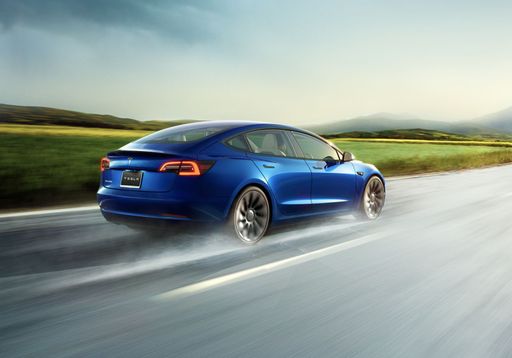
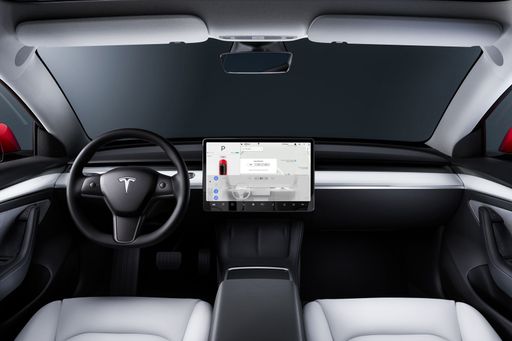
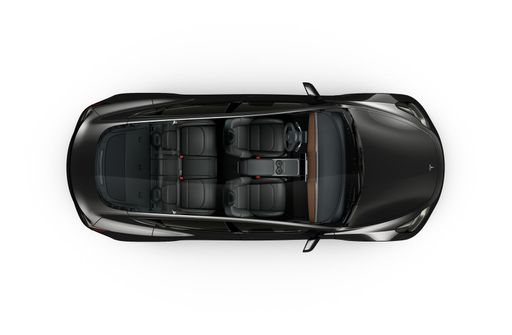
Costs and Consumption |
|
|---|---|
|
Price
38200 - 55500 £
|
Price
34300 - 50100 £
|
|
Consumption L/100km
2.5 - 7.7 L
|
Consumption L/100km
-
|
|
Consumption kWh/100km
-
|
Consumption kWh/100km
13.2 - 16.7 kWh
|
|
Electric Range
81 km
|
Electric Range
550 - 750 km
|
|
Battery Capacity
14.20 kWh
|
Battery Capacity
64.5 - 83 kWh
|
|
co2
57 - 175 g/km
|
co2
0 g/km
|
|
Fuel tank capacity
47 - 54 L
|
Fuel tank capacity
-
|
Dimensions and Body |
|
|---|---|
|
Body Type
SUV
|
Body Type
Sedan
|
|
Seats
5
|
Seats
5
|
|
Doors
5
|
Doors
4
|
|
Curb weight
1575 - 1935 kg
|
Curb weight
1822 - 1929 kg
|
|
Trunk capacity
490 - 540 L
|
Trunk capacity
594 L
|
|
Length
4500 mm
|
Length
4720 - 4724 mm
|
|
Width
1845 mm
|
Width
1850 mm
|
|
Height
1630 - 1642 mm
|
Height
1431 - 1440 mm
|
|
Max trunk capacity
1495 - 1545 L
|
Max trunk capacity
-
|
|
Payload
490 - 500 kg
|
Payload
303 - 333 kg
|
Engine and Performance |
|
|---|---|
|
Engine Type
Diesel MHEV, Petrol MHEV, Petrol, Diesel, Plugin Hybrid
|
Engine Type
Electric
|
|
Transmission
Automatic
|
Transmission
Automatic
|
|
Transmission Detail
Dual-Clutch Automatic
|
Transmission Detail
Reduction Gearbox
|
|
Drive Type
Front-Wheel Drive, All-Wheel Drive
|
Drive Type
Rear-Wheel Drive, All-Wheel Drive
|
|
Power HP
136 - 326 HP
|
Power HP
283 - 460 HP
|
|
Acceleration 0-100km/h
5.4 - 9.2 s
|
Acceleration 0-100km/h
3.1 - 6.1 s
|
|
Max Speed
190 - 233 km/h
|
Max Speed
201 - 262 km/h
|
|
Torque
230 - 477 Nm
|
Torque
420 - 660 Nm
|
|
Number of Cylinders
3 - 4
|
Number of Cylinders
-
|
|
Power kW
100 - 240 kW
|
Power kW
208 - 338 kW
|
|
Engine capacity
1499 - 1998 cm3
|
Engine capacity
-
|
General |
|
|---|---|
|
Model Year
2024 - 2025
|
Model Year
2025
|
|
CO2 Efficiency Class
D, E, F, B
|
CO2 Efficiency Class
A
|
|
Brand
BMW
|
Brand
Tesla
|
Is the BMW X1 offered with different drivetrains?
The BMW X1 is offered with Front-Wheel Drive or All-Wheel Drive.
The prices and data displayed are estimates based on German list prices and may vary by country. This information is not legally binding.




